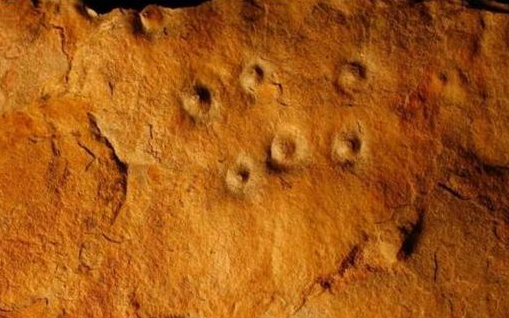(单词翻译:单击)
Scientists have found what they think is the oldest fossil on Earth, a remnant of life from 3.7 billion years ago when Earth's skies were orange and its oceans green.
近日,科学家发现了距今约37亿年前的微生物菌席化石,当时地球天空还是橘色的,大海也还是绿色的。他们认为这是迄今为止发现的最古老的化石。
In a newly melted part of Greenland, Australian scientists found the leftover structure from a community of microbes that lived on an ancient seafloor, according to a study in Wednesday's journal Nature.
《自然》杂志周三刊登的文章报道,澳大利亚的科学家在格林兰岛一块新融化的区域发现孕育于古代海床的微生物菌席化石。
The discovery shows life may have formed quicker and easier than once thought, about half a billion years after Earth formed. And that may also give hope for life forming elsewhere, such as Mars, said study co-author Martin VanKranendonk of the University of New South Wales and director of the Australian Center for Astrobiology.
该报告的联合作者、也是新南威尔士大学学者和澳大利亚地球科学研究中心负责人的马丁·范克朗多克表示,该发现说明地球生命形成的时间要比预想的早而且容易,大概在地球形成5亿年就形成了。该发现也可能证实火星等其他星球也许也存在生命。

"It gives us an idea how our planet evolved and how life gained a foothold," VanKranendonk said.
范克朗多克说道:"这一发现有助于我们理解地球的演化,以及地球生命是如何孕育的。"
Scientists had thought it would take at least half a billion years for life to form after the molten Earth started to cool a bit, but this shows it could have happened quicker.
地球早期火山喷发不断,内部温度很高。科学家们此前一直认为生命体是在地球温度稍微变冷的时候出现的,但是现在如果该发现属实的话则意味生命体开始形成的时间要更早。
That's because the newly found fossil is far too complex to have developed soon after the planet's first life forms.
因为这些新发现的化石很复杂,不可能在地球上出现生命体不久就形成。
In an outcrop of rocks that used to be covered with ice and snow which melted after an exceptionally warm spring, the Australian team found stromatolites, which are intricately layered microscopic layered structures that are often produced by a community of microbes.
来自澳大利亚的科学小组无意中在凸起的岩石中发现了叠层石,叠层石是由微生物群构成的沉积结构。这些岩石此前被冰雪覆盖,由于极度暖和的春天,冰雪融化,它们才得以"重见天日"。
The stromatolites were about 1 to 4 centimeters high.
这些叠层岩介于1-4公分之间。
It "is like the house left behind made by the microbes," VanKranendonk said.
范克朗多克说道:"它就像是微生物们留下的空房子"。
The dating seems about right, said Abigail Allwood, a NASA astrobiologist who found the previous oldest fossil, from 3.48 billion years ago, in Australia.
美国航空航天局的地质学家阿比盖尔·奥尔伍德对此提出了自己的质疑,她此前曾于澳大利亚发现了34.8亿年前的化石。
But Allwood said she is not completely convinced that what VanKranendonk's team found once was alive. She said the evidence wasn't conclusive enough that it was life and not a geologic quirk.
但是奥尔伍德还表示,这一时间推论看起来没什么问题,该团队的发现并不能完全说服自己。她认为本次发现的证据还不足以证明他们发现是生命体而非地理学上的巧合。
"It would be nice to have more evidence, but in these rocks that's a lot to ask," Allwood said in an email.
奥尔伍德在一封邮件中写到:"能发现更多的证据当然很棒,但是目前发现的这些岩石中还存在很多谜团。"


